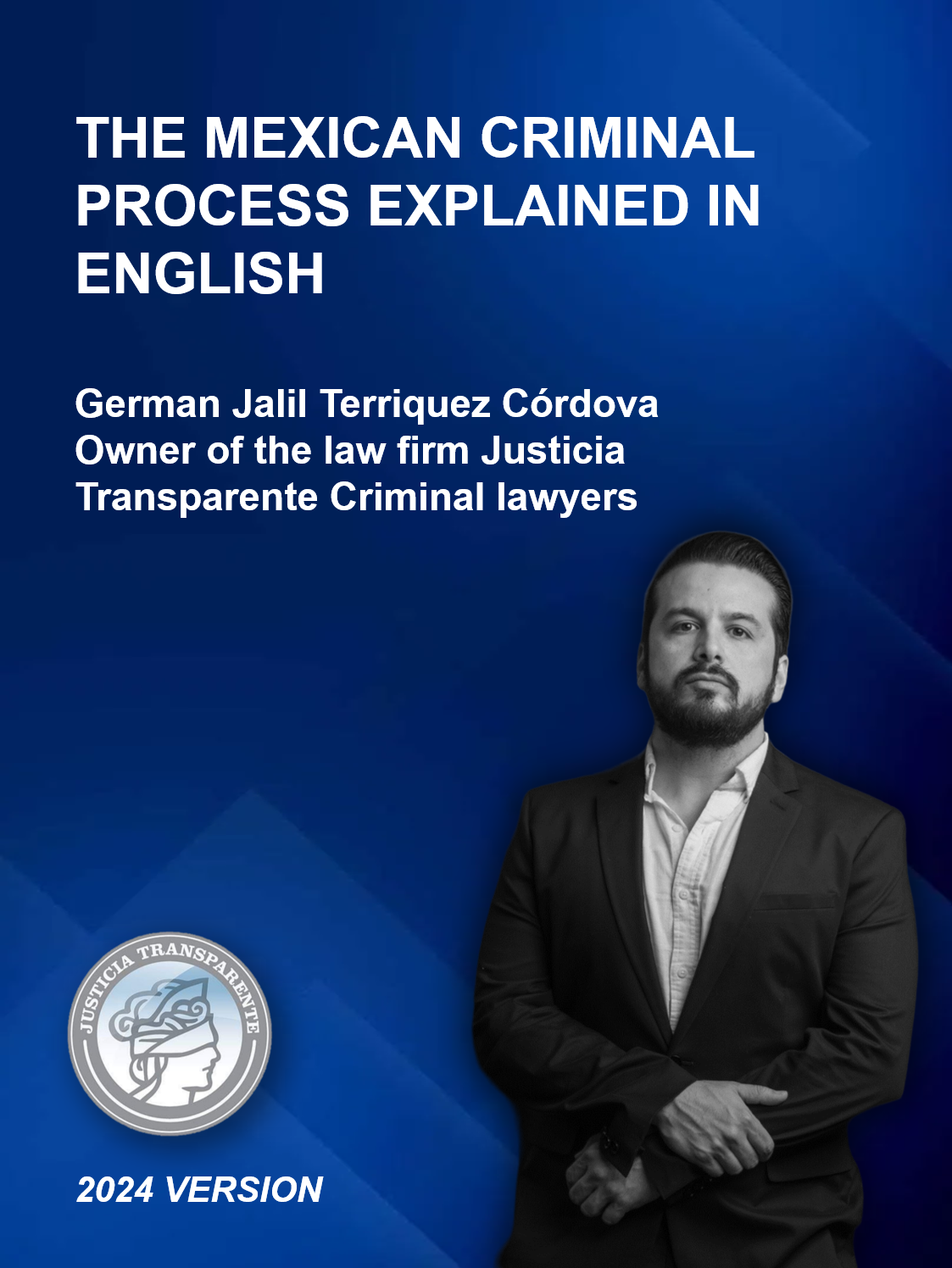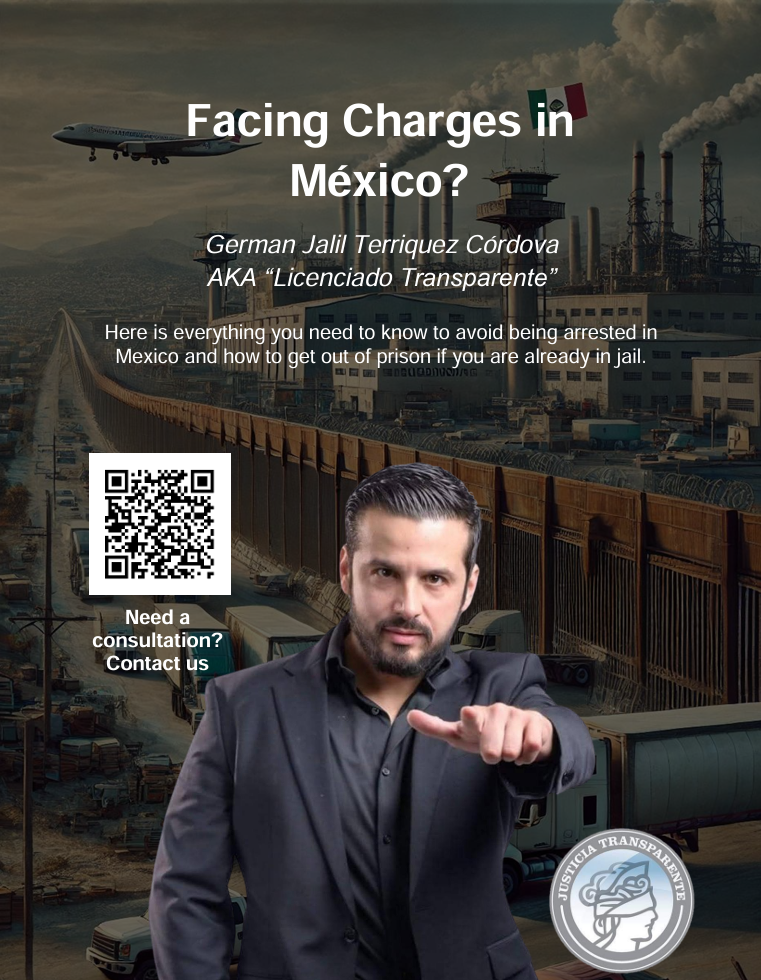Under Mexican extradition criminal law, the prosecutor, with the go-ahead from a Mexican criminal judge and approval from Mexican diplomatic authorities, can issue extradition orders against people who’ve been accused of a crime and are known to be currently in the United States.
While it’s true that the only legal requirement is that the crime being investigated in Mexico also exists in the United States and that there’s an international treaty between both countries (which does exist), in practice, it’s really only for these 5 crimes that the prosecutor goes through the motions to seek extradition and arrest the accused on U.S. soil with the help of Interpol.
Special Topics Related to the Seriousness of Being Arrested for Extradition
- If you’ve fled the country after finding out you’re under investigation for a crime, it can mean the prosecutor can prove to the judge that you’re a danger if left free. This means that paying bail to be released while your guilt or innocence is decided is likely not an option.
- Extradition requests happen when the prosecutor has a serious interest in making sure the accused faces punishment. In these cases, you can be sure the prosecutor and the Mexican state are heavily invested, which will make your defense and release a lot harder.
- If you’re worried or think you might have an extradition order, there are ways to check in Mexico to see if that’s the case. Get in touch with Justicia Transparente for legal solutions.
Rape
In Mexico, rape is a serious crime that can lead to up to 30 years in prison for the most severe cases.
Right now, there’s a strong feminist policy in Mexico to immediately investigate and punish any crime committed against women, especially if the victim is a minor. It’s not uncommon for Americans to face these accusations when they’re vacationing in Mexico or visiting entertainment spots like the Hong Kong Club in Tijuana.
Accused a relative of a crime in Mexico? Do you need to know if it is a crime to bring weapons into Mexico? Do you need to know if it is a crime to bring marijuana into Mexico? The prosecutor is accusing me of having committed a crime that I did not commit? Has your loved one been in jail in Mexico for years?
If you are in one of these situations, hire an online consultation.
Do you want to avoid an arrest warrant against you in Mexico?
Section 265: It’s considered rape when someone, through physical force or intimidation, has intercourse with a person of any gender. The penalty for this crime is a prison sentence ranging from eight to twenty years.
Sexual Assault
Sexual assault is a crime that carries lighter penalties compared to rape, with sentences that can go up to 20 years in the most serious cases, especially when minors and physical violence are involved.
Visit our online store
One of our products can help you
Extradition requests are pretty common in these cases. If the prosecutor gets solid information identifying the accused and confirms that they’re in the U.S., that’s usually enough to kick off the extradition process. The prosecutor often investigates cases involving child sexual abuse and the use of digital apps to facilitate these crimes. Just a reminder: in Mexico, the age of consent is 18. You can check out our article that covers this topic in detail.
Article 260: Sexual abuse occurs when someone, without consent, performs or forces someone else to perform sexual acts on themselves or others, without the intent of intercourse. Those who commit this crime face six to ten years in prison and up to a two-hundred-day fine.
Gun-Related charges
In Mexico, unlike the U.S., carrying firearms is illegal in most cases and can lead to sentences of up to 15 years in prison. Check out our blog to get the full scoop on penalties for different types of gun-related crimes.
Usually, these arrests of U.S. citizens happen when they cross the border from the States into Mexico at customs. Tijuana, Mexicali, and Ciudad Juárez are the hotspots where this happens most often.
In many cases, U.S. citizens who are arrested manage to get released but must agree to return for court dates to follow up on their case. However, more often than not, they go back to the U.S. and don’t return to Mexico. If that happens, an extradition order could be issued against you.
Drug-Related Crimes
Drug busts in Mexico often happen when people are crossing over from the U.S. at customs. The usual suspects are drugs like weed, cocaine, and fentanyl.
Even if you’re not some big-time drug lord, Mexico doesn’t play around with this stuff. You can face some serious time—up to 30 years in prison (you can dive into the penalties a bit more in this article). That’s why this is one of the top crimes that the Mexican government looks to extradite people for.
Murder
Murder is one of the most serious crimes in Mexico right now, with penalties that can hit up to 70 years in prison.
Crimes against women (known as femicides in Mexico) and violent murders (first-degree murder) are situations that prosecutors investigate pretty quickly and efficiently, so extradition will definitely be on the table if you’re being accused of these crimes.
The Mexican criminal process explained in English

Facing Charges in México?.




